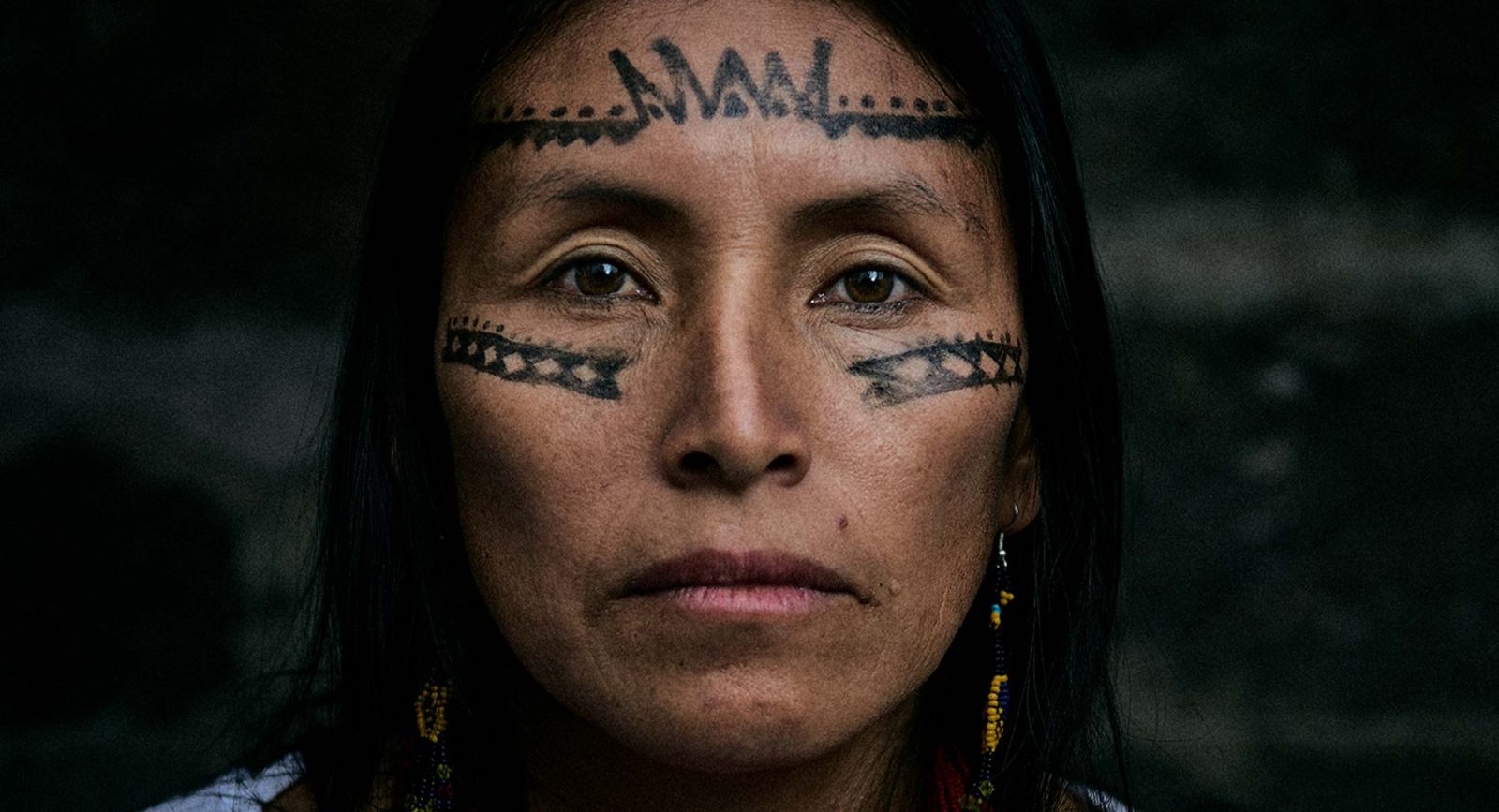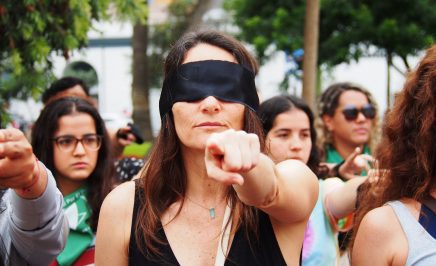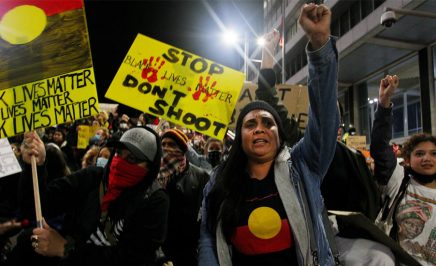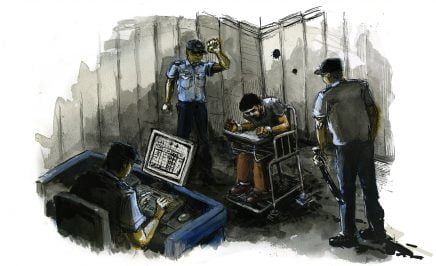Today, at the end of Amnesty International’s visit to Ecuador, the organization expressed concern about the lack of concrete measures taken by the state to guarantee the effective protection of human rights defenders, as well as highlighting the authorities’ persistent inability to carry out appropriate and effective investigations into attacks and threats against members of the Mujeres Amazónicas (Amazonian Women) collective. The organization also expressed concern at impunity for human rights violations committed during the October 2019 protests and the state’s failure to assess the impact of austerity measures on human rights.
“For any policy for the protection of human rights defenders to be effective, the authorities must first publicly recognize the legitimacy of human rights defenders’ work and foster an environment that enables them to carry out this work in safe conditions,” said María José Veramendi, Amnesty International researcher for South America.
One year after the publication of the report “They will not stop us”, which exposed the flaws in the response of the Attorney General’s Office to a series of attacks and death threats against Patricia Gualinga, Nema Grefa, Salomé Aranda and Margoth Escobar, all members of Mujeres Amazónicas, Amnesty International’s research shows that investigations into these attacks have not made any significant progress.
“We want justice, we want our rights respected,” Mujeres Amazónicas told the Ecuadorian authorities. “We are women of peace, but we are also like a beehive: what affects one of us affects us all. We will be here as long as there are violations of human rights and of our territory.”
On 9 March, Amnesty International representatives and members of Mujeres Amazónicas handed over more a petition with than 250,000 signatures, collected in at least 168 countries, to the Director for Human Rights of the Attorney General’s Office, Daniel Eduardo Vejar Sánchez. The petition called on him to:
- Initiate prompt, thorough, independent and impartial investigations into the attacks and threats against Patricia Gualinga, Nema Grefa, Salome Aranda and Margoth Escobar;
- Investigate the possibility that these attacks may have been motivated by the human rights work of these women, and identify all the alleged material and intellectual authors and bring them to justice;
- Design and implement a Protocol for the Investigation of Crimes against Human Rights Defenders, to strengthen coordination between the mechanisms and authorities responsible for conducting criminal investigations.
The Attorney General’s Office noted that there is currently “a [legal] gap on how such cases should be handled”. Amnesty International told the Attorney General’s Office that the lines of investigation and protection measures that the authorities have offered to victims continue to ignore possible motives for the attacks linked to the work of human rights defenders which could pose a challenge to large-scale economic interests. Furthermore, the investigations lack a gender perspective which recognizes how their role as women Indigenous leaders and human rights defenders could be viewed negatively because it defies the gender stereotypes imposed on women.
The Attorney General’s Office stated that it is working on internal guidelines for investigating cases where the victim is a human rights defender and provided detailed information on each of the investigations where there has been a lack of progress. Amnesty International expressed concern that driving investigations forward and the carrying out procedures is a state obligation and must not fall to the victims.
Amnesty International and Mujeres Amazónicas welcomed the commitment of the Directorates for Human Rights, for Legal Oversight and for the Victim Protection System of the Attorney General’s Office to go to Pastaza province, where the events occurred and investigations are ongoing, in the last week of March to verify the investigations on the ground.
Since the start of its campaign for the protection of Mujeres Amazónicas, Amnesty International has been calling on Ecuador to design and implement a public policy to protect human rights defenders and to guarantee the meaningful and effective involvement of people and communities defending human rights in developing the policy.
The Secretary of State for Human Rights, Cecilia Chacón, stated that she is leading a forum made up of various institutions, including the Attorney General’s Office, the Judicial Council, the Ministry of the Interior and the Ombudsman’s Office, which is working on a plan for the protection of human rights defenders that they hope to have finalized by October 2020.
The urgent need for such a policy is underscored by the fact that since 2019, Amnesty International has noted with concern human rights violations targeting several human rights defenders. These include, for example, criminal proceedings against the digital defender Ola Bini and the government’s undue interference in his case and the theft of information and harassment reported by organizations, such as Acción Ecológica and the Fundación Pachamama, that support people working to protect the Amazon from political and economic interests linked to extractive projects in Indigenous territories.
Amnesty International also referred to the human rights violations committed in the context of the national strike last October. Through prompt verification of audiovisual evidence, the organization identified five incidents that illustrate the unlawful use of force by the security forces during protests. In these incidents, police officers knocked people down, beat them and fired tear gas in an unnecessary and disproportionate manner, causing injuries.
In a meeting between Amnesty International and the Alliance of Human Rights Organizations – made up of the Comisión Ecuménica de Derechos Humano (Cedhu), the Comité Permanente por la Defensa de los Derechos Humanos (CDH), the Fundación Regional de Asesoría en Derechos Humanos (INREDH), Surkuna, the Fundación Idea Dignidad, and Amazon Frontlines – Alliance members criticized the lack of progress in the investigations into the deaths that occurred in the context of the national strike. Several Alliance members reported that their organizations had been the targets of harassment and threats for their work reporting human rights violations during the strike. Similarly, the President of the Confederation of Indigenous Nationalities of Ecuador (Confederación de Nacionalidades Indígenas del Ecuador, CONAIE), Jaime Vargas, told Amnesty International: “the state must stop seeing CONAIE as the enemy.”
Amnesty International expressed its concern about the death threats against the Ombudsman and the attacks on the important work that the institution he heads carried out during the national strike.
The Ombudsman, Freddy Carrión, warned of the “setbacks in the protection of human rights” in Ecuador and noted that, despite having promptly filed a complaint about the death threats against him, the Attorney General’s Office has failed to initiate a prompt, thorough and effective investigation to identify those responsible.
“Impunity is the common denominator between the human rights violations that occurred in the October strike and the attacks and threats committed against Mujeres Amazónicas. As long as those responsible are not investigated and punished, there is a risk that these events will be repeated, violating victims’ rights to truth, justice and reparation,” said María José Veramendi.





